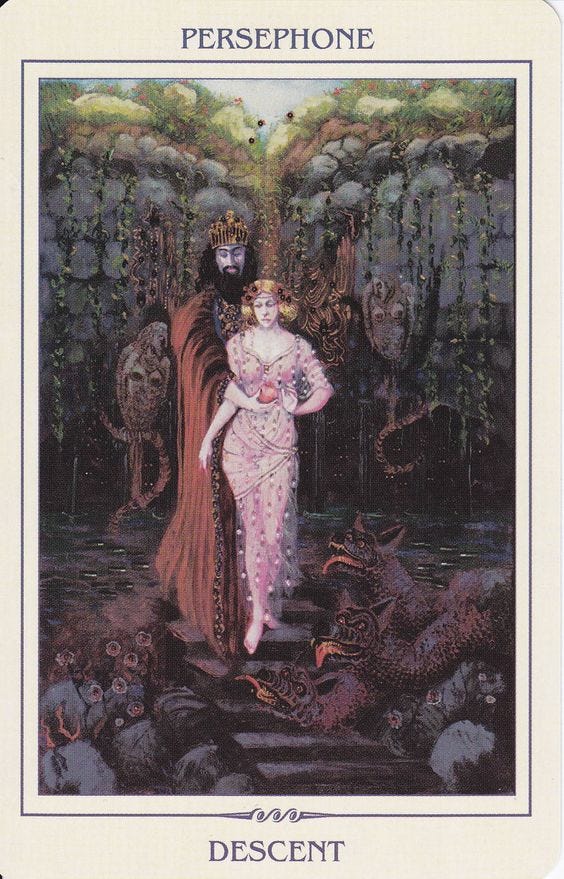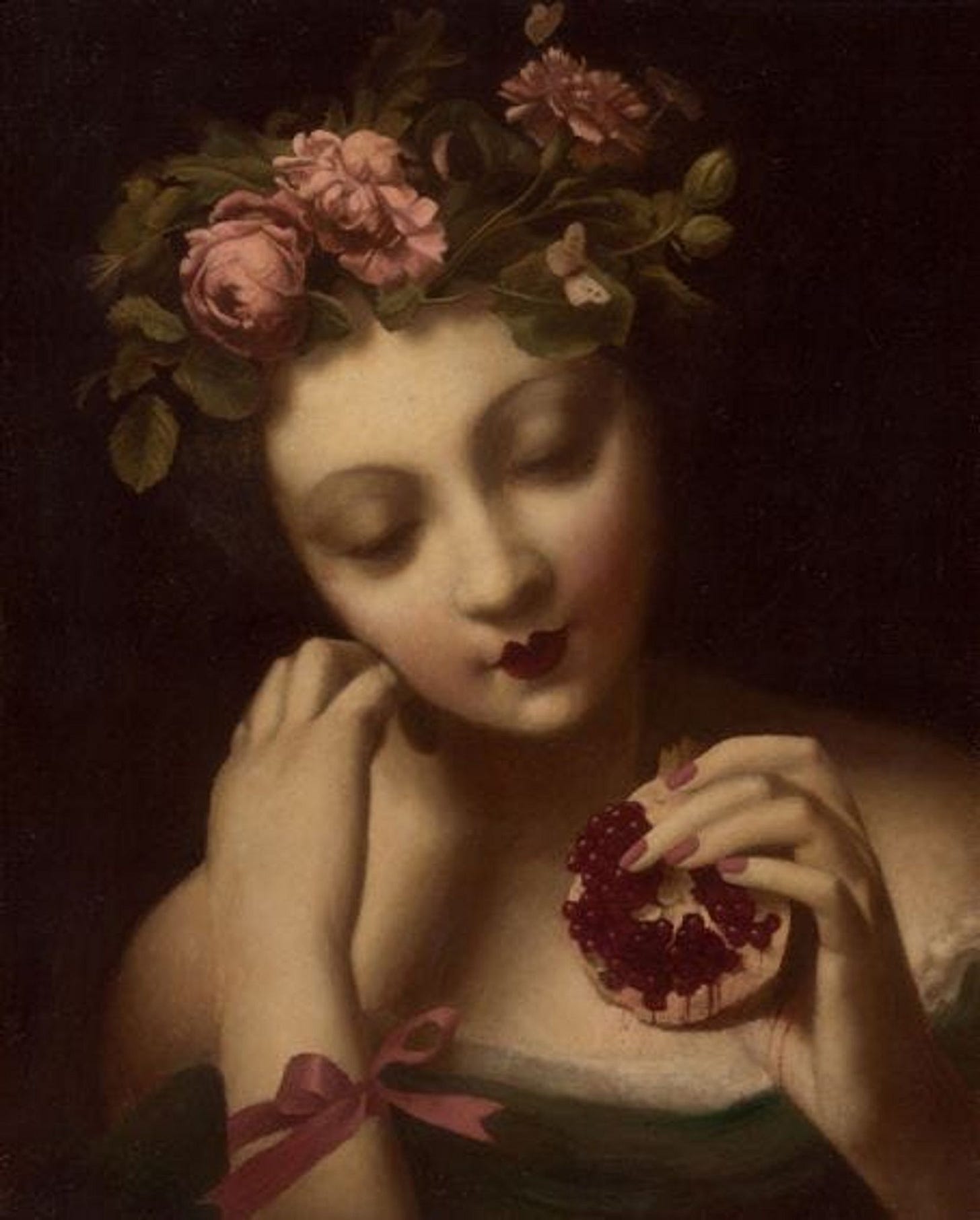[2.2] Unveiling the Cosmic Rebels: PERSEPHONE 🍇🌾👑☠️
from maiden princess to queen of the shadows or GOOD GIRL GONE BAD
We continue our journey of honoring the deliciously dual Dark Goddesses from around the world with one of my personal favorites, Persephone from the Ancient Greek tradition.
Persephone’s story is the young, innocent maiden and beloved daughter of Fertility Goddess Demeter and Zeus, the head honcho of the pantheon of Greek gods and goddesses. She embodies love, joy, curiosity, and optimism. She’s adored by her mother and in her youth spends her time playing outside with her garden nymph friends.
On the surface, Persephone’s story is depressing. Zeus’s brother Hades, King of the Underworld, is a loner who rarely comes up to the surface of Earth and notably has zero game. So Zeus cheers him up by secretly promising his daughter Persephone to Hades in marriage.
Done in secret because they both know Persephone’s over-protective (and perhaps slightly controlling) Mother Demeter has long protected Persephone from all suitors, and absolutely would *not* approve of this union, Hades resorts to trickery to abduct her with Zeus’s help (barf). And yes, in ancient texts “abduction” and “rape” are often used interchangeably. One often means the other.
Once Persephone arrives in the Underworld, Hades does his best to try to get lamenting Persephone to fall in love with him. He love bombs her, showering her in adoration, gifts, and a coveted place by his side as Queen of the Underworld. But when Demeter finds out what’s going on and refuses to let the earth bear fruit until Persephone returns, Zeus realizes he needs to rectify the situation ASAP. He descends into the Underworld to retrieve her.
Hades, not sure if Persephone will agree to staying with him when given her own choice, gifts her a Pomegranate knowing that when she would take a bite she’d be condemned to come back to her captor for eternity. For the 6 pomegranate seeds she ate, Persephone was doomed to spend 6 months out of the year with Hades in the Underworld (when we experience Autumn and Fall), and 6 months on Earth with her Mother, bringing Spring and Summer with her.
Modern feminist retellings of the story focus on Persephone’s transformation and even reimagine the abuse as romance, settling for a stockholm syndrome-esque happy ending.

While I appreciate getting lost in the fantasy of romance, Persephone’s story can be more deep, profound, and timelessly relevant to the plight of women under patriarchy by making meaning of the original myth rather than revising it entirely.
Feminist criticism of the retelling of Persephone argues that by revising the classic story of abduction, classically normative of those times, into one of a fairytale romance, we lose the integrity of the story and more importantly diminish that which is endured by our heroine, which archetypally represents the violence women continue to endure under modern patriarchy.
Restoring agency to these women doesn’t happen by denying them their trauma, or by removing the label of victim. They enjoy true agency when their authors allow them to rise above their victimhood and become survivors, or at the very least become women who deal with the world on their own terms. True feminist retellings recognize and don’t repress their characters’ liminality. Aimee Hinds Scott, Rape or Romance?
In truth, Persephone’s agency and the ability to choose what she wanted were stripped away from her rather brutally. Persephone’s story is that of a survivor’s. I see my own story reflected in hers. Everyone around her, including her Mother, sought to control Persephone and because of their relative power in the hierarchy and they all succeeded in doing so.
We can honor Persephone by recognizing the abuse she endured, the gold she spun out of one shitty situation, and the transformation that she embarked on. She shows us that the softest among us are the most strong. She has seen the darkest of nights and doesn’t lose her romantic heart or her self-sovereignty. I like to imagine Persephone in her time in the Underworld as being a source of warmth and comfort to the souls transitioning from Death to the next stage in the cycle of life.
Persephone in Pop Culture: Sandy in Grease, Belle from Beauty & the Beast, Weol-Ju in K-Drama Mystic Pop-Up Bar (Netfllix)

Associations:
Pomegranates
Flowers
Springtime
Crowns








